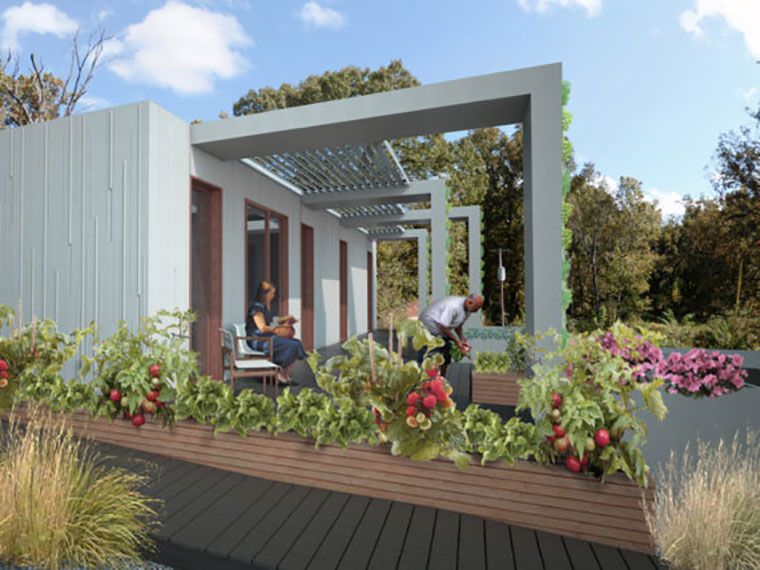Concrete is durable, inexpensive and ubiquitous. But is it sustainable?
Yes, argues Hongxi Yin, I-CARES associate professor at Washington University in St. Louis. Though the manufacturing process emits carbon dioxide, those emissions are offset by the material’s longevity and unique thermal properties.
“Concrete will last 100 years,” explains Yin, an internationally recognized expert on green development. It also boasts a high heat capacity, or thermal mass. On a summer afternoon, concrete walls absorb the warmth of the sun, slowing the rise of interior temperatures. On a summer evening, natural ventilation releases the heat back outside, dispersing it into the cool night air.
